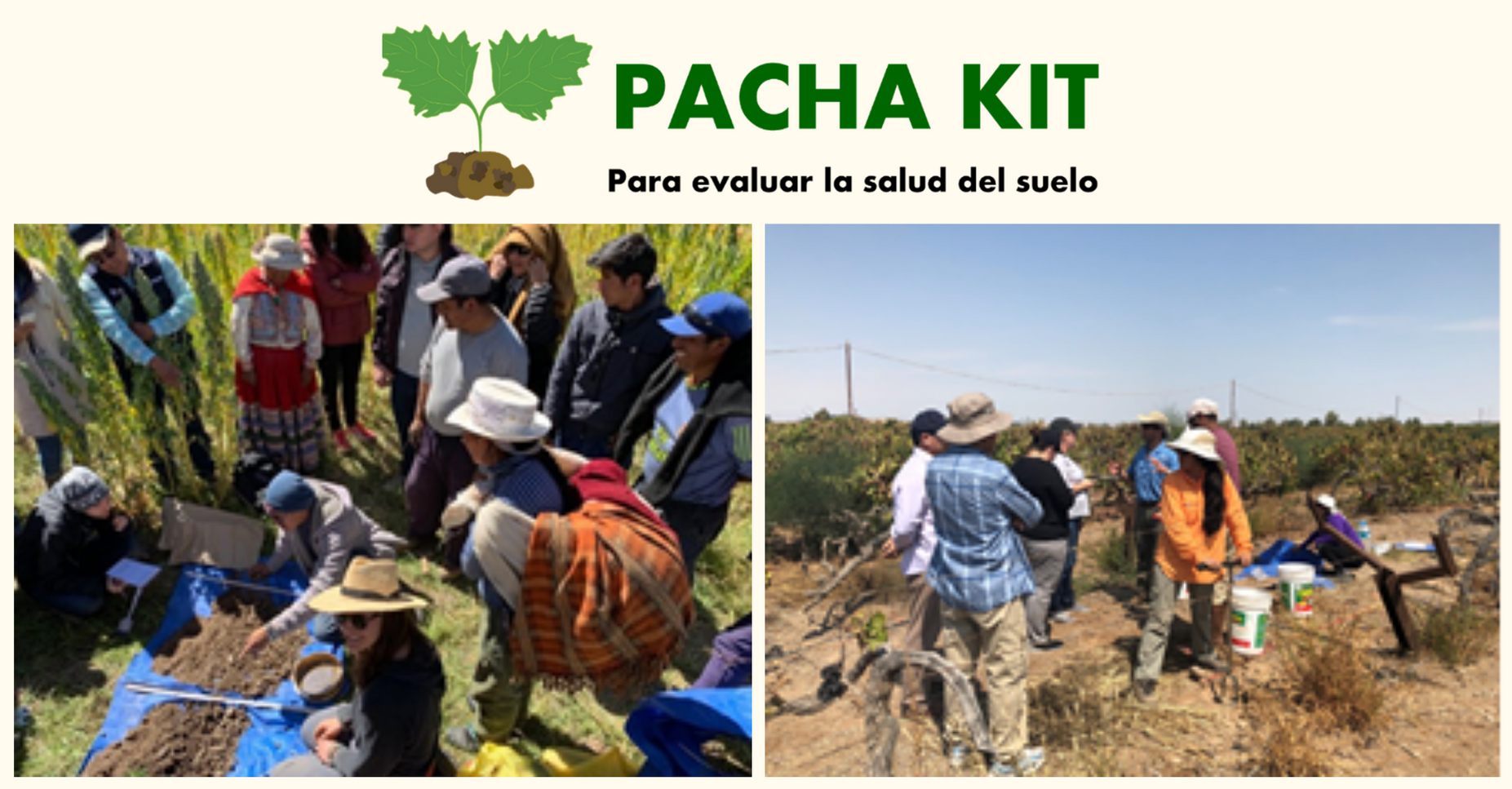Using Pacha Kit to Measure Soil Health Indicators: Nexus Featured Research Tool
October 11, 2021
Soil practices can improve agricultural productivity, but a healthy soil cannot be only defined by crop yield. It is necessary to measure integrated chemical, biological, and physical indicators that are sensitive to management and reflect changes in resilience and adaptation. Soil health is then defined as the ability of the soil to sustain the productivity, diversity, and environmental services of terrestrial ecosystems (ITPS, 2020). Moreover, soil management decisions, crop rotation, and application of agrochemicals lead to changes in physical, chemical, and biological soil properties that require constant monitoring and evaluation.
In this context, Peruvian smallholder farmers face limited access to basic farming needs like formal soil analysis, and when done, these analyses can be costly, complex, lacking standardization, and can delay farmer decision-making. To foster knowledge exchange and future collaborations with farmers, the Soil Vulnerability, Impairment, and Health Assessment (SHIVA) group of the Arequipa Nexus Institute has adapted a relatively simple soil kit, the PachaKit, to measure soil health indicators such as physical characterization, bulk density, infiltration, electric conductivity, pH, nitrates, texture, aggregate stability, particulate organic matter (POM), permanganate oxidizable carbon (POXC), extractable phosphorus (P) and macrofauna. These indicators are fundamental to understand soil nutrient cycling and can be evaluated by looking for patterns and comparing results to measurements taken at a different time or field.
The methods adapted for the PachaKit require minimal use of reagents and easily accessible materials. In addition, to develop the active participation of the farmers, the information needed to use the PachaKit is offered both in Spanish and Quechua. With little training, farmers can collect information about their own fields using standardized methods to make more informed decisions. The partnership between them and Nexus researchers will provide reliable data that can be used to create a soil health map of the Arequipa region.
Contact Details
- Renata Ximenes
- c4e-nexus@purdue.edu
- 7654942394


